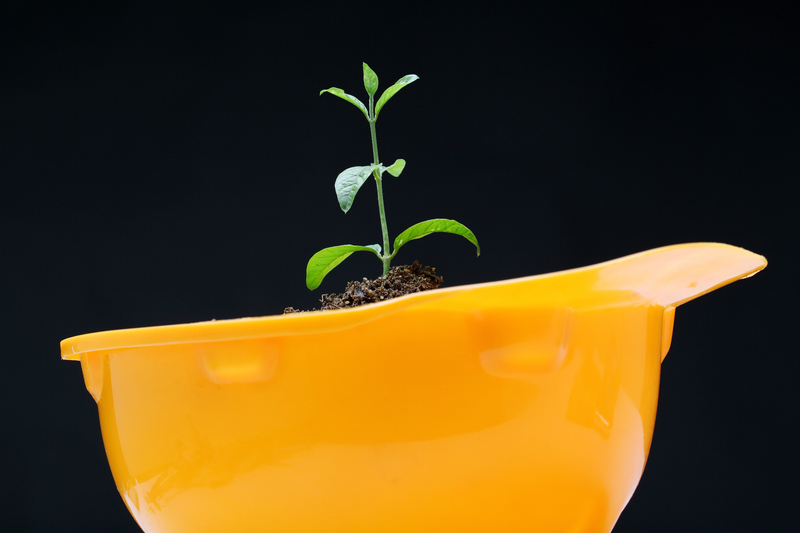Smart Ways to Reduce the Impact of PPE Waste
The extensive use of personal protective equipment (PPE) has been critical in safeguarding health during pandemics and in hazardous environments. However, the rise in PPE waste has caused significant environmental challenges. Used masks, gloves, gowns, and face shields often end up in landfills or oceans, posing a threat to wildlife and ecosystems. This article explores smart ways to reduce the impact of PPE waste and discusses innovative strategies to manage and minimize its environmental footprint.
Understanding PPE Waste: An Emerging Concern
During the COVID-19 pandemic, PPE use surged globally, leading to an estimated 129 billion face masks and 65 billion gloves being discarded each month. Unfortunately, a large percentage of this waste is improperly disposed of, exacerbating pollution problems.
- Environmental Impact: PPE is often made from non-biodegradable plastics like polypropylene, which can persist in the environment for centuries.
- Wildlife Risk: Animals can mistake PPE items, especially masks and gloves, for food--resulting in injury or death.
- Human Health Implications: Microplastics from degraded PPE may enter the food chain, threatening human health.

Why Reducing the Impact of PPE Waste Is Crucial
The consequences of PPE pollution are far-reaching, affecting air, water, soil, wildlife, and even our own well-being. Addressing this growing waste stream is imperative for a sustainable future. Fortunately, there are many smart solutions to reduce PPE waste while still maintaining necessary health and safety standards.
Smart Solutions to Minimize PPE Waste Impact
1. Opt for Reusable PPE Where Feasible
In healthcare and industrial settings, single-use PPE has been the norm due to strict hygiene requirements. However, recent advances have led to reusable PPE solutions:
- Reusable Face Masks: Cloth masks and those designed for sterilization can be washed and reused multiple times, drastically reducing waste.
- Durable Gloves and Gowns: Certain types of gloves and gowns are manufactured to withstand repeated cleaning and disinfection procedures without compromising protection.
- Best Practices: Ensure proper sanitation protocols to avoid cross-contamination when utilizing reusable PPE.
2. Invest in PPE Recycling Programs
Recycling traditional PPE is challenging due to contamination and material composition, but new initiatives are emerging:
- Specialized Recycling Facilities: Companies like TerraCycle offer recycling boxes for used PPE, ensuring safe processing of masks, gloves, and gowns.
- Material Recovery Innovations: Research is ongoing to develop methods to recycle polypropylene and other PPE plastics into construction materials, furniture, and even roadways.
- Community Partnerships: Work with local organizations to implement PPE collection and recycling initiatives in your area.
3. Encourage Proper Disposal and Segregation
Improper disposal of PPE contributes significantly to environmental pollution. Promoting correct practices is vital:
- Designated PPE Bins: Place clearly labeled bins in public and workplace locations for used PPE collection.
- Educational Campaigns: Raise awareness about the environmental impact of PPE waste and the importance of responsible disposal.
- Sanitation Protocols: For contaminated PPE, ensure it is treated and disposed of following hazardous waste guidelines.
4. Promote Biodegradable and Eco-Friendly PPE Options
Design innovation is key to reducing the environmental impact of PPE waste. Eco-friendly alternatives include:
- Biodegradable Masks: Some companies produce masks made from biodegradable materials such as bamboo fiber or bioplastics.
- Compostable Gloves: Alternatives to latex and nitrile gloves are being developed from natural materials, minimizing landfill accumulation.
- Sustainable Packaging: Opt for PPE packaged in recyclable or compostable materials to further reduce waste.
5. Reduce Overuse of PPE
While PPE is essential for safety, overuse increases environmental pressure. Smart management helps optimize usage:
- Assess Actual Needs: Only utilize PPE when necessary, based on risk assessments and up-to-date safety guidelines.
- Training and Awareness: Educate users on correct PPE usage to prevent wastage and misuse.
- Policy Updates: Regularly review and update policies to ensure PPE is being used effectively and efficiently.
Innovative Strategies for Businesses and Organizations
Implement PPE Waste Audits
Businesses can start with a comprehensive audit to determine the volume and type of PPE waste generated. Use this data to identify reduction opportunities and implement targeted actions:
- Monitor Usage Patterns: Track which types of PPE are used most and explore alternatives or reusable options.
- Set Reduction Targets: Establish clear goals for decreasing PPE waste each quarter or year.
Develop Employee Engagement Programs
Your workforce is key to the success of any sustainability initiative. Educate, motivate, and recognize employees for their contributions:
- Regular Workshops: Host sessions on responsible PPE use and proper disposal.
- Incentives: Reward teams or individuals who demonstrate exceptional commitment to reducing PPE waste.
Collaborate with Green Suppliers
Partnering with suppliers that value sustainability can pave the way for lasting change:
- Source Eco-Friendly PPE: Choose products certified as biodegradable, compostable, or made from recycled materials.
- Evaluate Supplier Practices: Work with vendors who have robust environmental management policies.
The Role of Governments and Policymakers
Smart PPE waste management requires action and support at all levels of society. Authorities can support reduction efforts in several ways:
- Regulation: Set mandates for PPE waste handling, segregation, and recycling--especially for large institutions.
- Research Grants: Fund the development of sustainable PPE and recycling innovations.
- Public Campaigns: Run educational campaigns encouraging citizens to minimize PPE waste impact and participate in local recycling efforts.
Technology Advancements in PPE Waste Reduction
Advanced Sterilization for Reuse
Technologies like vaporized hydrogen peroxide and ultraviolet (UV) light sterilization enable certain PPE items to be reused safely, particularly in medical settings. This can significantly drop overall demand for new PPE and curb waste generation.
AI and Data Analytics
Leveraging AI and data analytics in inventory and waste tracking can help organizations:
- Predict PPE Needs: Prevent over-ordering and unnecessary stockpiling, thus cutting down on surplus PPE that could become waste.
- Monitor Waste Streams: Identify trends and devise interventions for high-waste departments or facilities.
Bioengineering and Novel Materials
Recent advances in material science are yielding PPE components that break down more easily in the environment or can be safely composted. This direction holds promise for making essential PPE safer for the planet.
Case Studies: Success Stories in PPE Waste Reduction
- Hospitals Implementing PPE Recycling: Hospitals in the UK and Australia have initiated pilot PPE recycling programs, diverting thousands of pounds of waste from landfills by working with specialized recycling firms.
- Universities Championing Reusable PPE: Some universities have adopted the use of reusable lab coats and washable masks, backed by robust cleaning and sterilization facilities, reducing waste by up to 50%.
- Cities with Public PPE Bins: Cities like Hong Kong have placed PPE-specific waste bins throughout public transit systems to ensure proper collection and avoid litter in urban areas.
Challenges and Obstacles in Reducing PPE Waste
- Contamination Risk: PPE often carries pathogens or harmful substances, complicating recycling and reuse efforts.
- Lack of Infrastructure: Many regions lack the necessary recycling units or collection schemes for separated PPE.
- Funding and Policy Gaps: Sustainable innovations often require upfront investments and supportive policies.
Smart Ways to Tackle PPE Waste in Daily Life
Individuals also play a crucial role in minimizing the environmental burden of PPE. Here are some practical steps you can take:
- Choose Reusable Options: Use washable masks when appropriate and follow safety guidelines.
- Dispose Responsibly: Never leave used PPE on the ground or in household recycling bins. Use designated PPE waste bins wherever possible.
- Advocate and Educate: Spread awareness among friends, family, and community about proper PPE waste handling and why it matters.

Future Outlook: PPE Waste Reduction and Sustainability
As technology and awareness advance, the future of PPE waste management looks promising. We can expect:
- Wider adoption of biodegradable and compostable PPE
- Improved, accessible PPE recycling infrastructure worldwide
- Greater focus on research, policy, and education for sustainable PPE use
Tackling the PPE waste crisis requires a blend of individual responsibility, innovative technology, and robust policy support. By embracing these smart ways to reduce the impact of PPE waste, we can protect both public health and the environment--now and for generations to come.
Conclusion: Taking Action for a Cleaner Planet
Addressing the environmental impact of PPE waste calls for collaborative, smart, and sustainable actions across society. With the strategies outlined above, from using reusable PPE and supporting recycling initiatives to advocating for policy change, every individual and organization can make a meaningful difference. Let's commit to smarter, greener choices as we protect our health and preserve our planet.
Start today: Whether at home, at work, or in your community, every action counts towards reducing the impact of PPE waste. Together, we can build a healthier, waste-resilient future.



